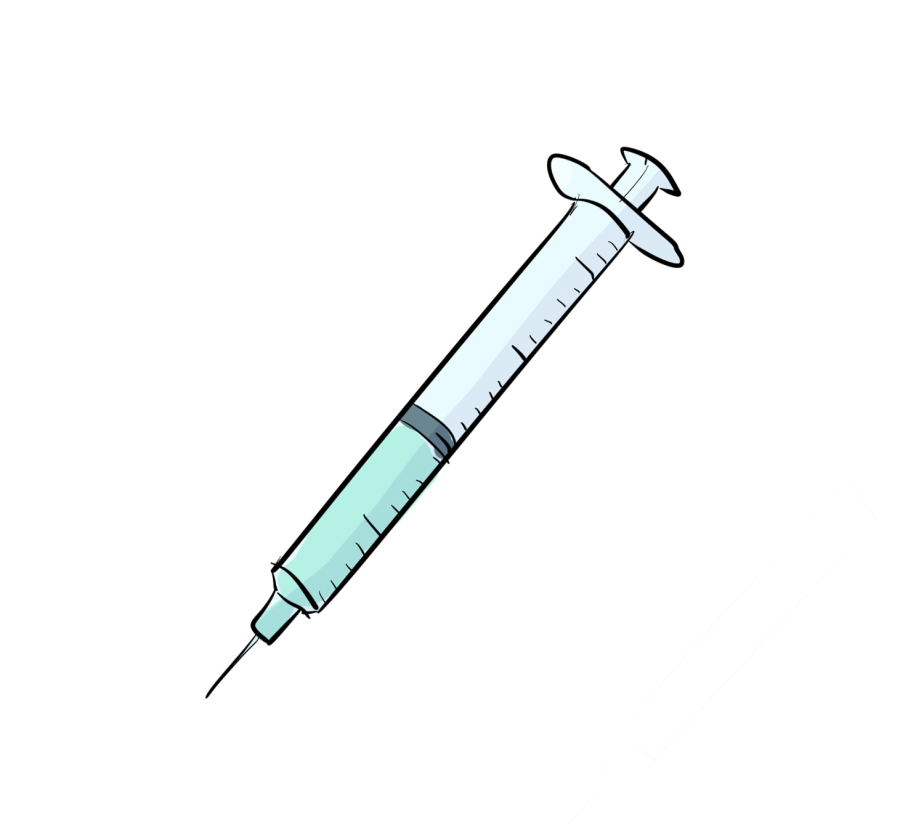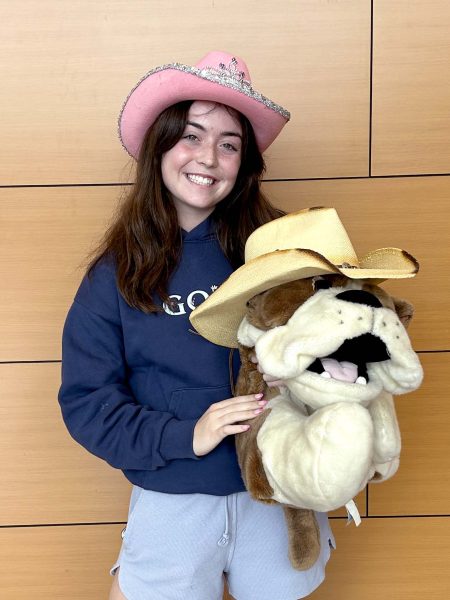Edina awaits vaccine approval for elementary school students
“These vaccines are one of the greatest gifts of technology to humanity probably in sixty years,” Dr. Marc Jenkins said.
October 28, 2021
After Evie Hein, a second-grader at Creek Valley, recovered from COVID-19, her family was ready to leave the experience in the past. A month later, Evie was in the hospital with multi-inflammatory syndrome, or MIS-C, a rare infection likely linked to COVID-19. “It was hard to see [her because she’s] so little in that bed, with all that stuff around her,” said Katie Hein, Evie’s mother.
Evie, along with more than 28 million other children, is too young to receive the COVID-19 vaccine. Pfizer is hoping to change that—the company is currently seeking approval from the FDA to authorize the emergency use of their COVID-19 vaccine for children aged 5-11.
Dr. Marc Jenkins, Director of Immunology at the University of Minnesota, explained the clinical trial process. “The process is pretty much the same as it is for adults. You’ve got a vaccine group and a control group, and you’ve got to wait long enough to accrue enough natural infections so that you can tell the difference between the two groups,” Dr. Jenkins said.
Children will receive the same vaccine as adults at only one-third the size of the adult dosage. “These mRNA vaccine formulations were so effective in adults. I think there’s really no reason to be tinkering with that until we have more research. That’s a standard practice in vaccine research: to take an effective dose in adults and scale it down to kids,” Dr. Jenkins said.
The trials have been effective, with a 90.7% efficacy rate in preventing symptomatic COVID-19 infections. Dr. Anthony Fauci was interviewed about COVID-19 vaccines on ABC’s “This Week.” “If all goes well, and we get the regulatory approval and the recommendation from the CDC, it’s entirely possible, if not very likely, that vaccines will be available for children from 5 to 11 within the first week or two of November,” Dr. Fauci said.
Vaccination rates in the EPS district are relatively low compared to other schools, such as Breck School where 93% of eligible students are vaccinated. In Edina Public Schools, 77.17% of 9-12 students are vaccinated and 50.41% of grades 6-8 students are vaccinated.
Dr. Stacie Stanley, Edina Public Schools superintendent, hopes to minimize learning time lost to lengthy quarantine processes through a series of COVID-19 testing initiatives she brought to the school board. The initiatives include rapid testing, which is not implemented yet due to the special certifications necessary. “If the whole class is [in] close contact, they would just come in and get swabbed. If they tested negative, they could go right back to class in 15, 20 minutes, which is significant compared to what it has been,” Dr. Stanley said.
It’s unlikely that a vaccine mandate will go into effect for Edina elementary schools, or any other Edina schools, for the time being. The district follows the Minnesota Department of Education, and it’s currently unclear what the department will say pertaining to mandatory COVID-19 vaccinations, according to Dr. Stanley.
As Pfizer waits for FDA approval, millions of elementary school teachers continue working to help their young students continue to learn in spite of the pandemic. Debbe Carroll, a kindergarten teacher at Cornelia Elementary School, reflects on the effects of COVID-19 on her students. “They are definitely behind where a normal incoming kindergarten class would be. [Fewer] kids have had preschool experience,” Carroll said.
Last year, Carroll’s entire class had to quarantine for 14 days twice because of COVID-19 exposure. “The principal and dean of students show up at our door, and it’s the last two people you want to see show up at your door because you know it’s bad news. They shoot out an email to the families and go as quickly as possible, and we scramble to try and put together stuff for [the students],” Carroll said. With Dr. Stanley’s proposals, this type of event would ideally be eliminated.
Many look forward to the vaccine approval. Katie Hein is eager to stop the spread of COVID-19 and MIS-C after Evie’s experience. “If we can do whatever we can to stop this from happening to other families, that would be good,” she said. “I think [the vaccine] should be required [in schools]. And that’s hard for people, but I think about other vaccines that have been required for so many years, and knowing how seriously doctors are taking it from our first-hand communication through this, I feel like it makes sense that this is something to take that seriously,” she added.
Dr. Jenkins also strongly encouraged vaccination. “These vaccines are one of the greatest gifts of technology to humanity probably in sixty years,” Dr. Jenkins said. “[COVID-19 vaccines], especially the mRNA vaccines, work a lot better than anybody thought they would work. It’s really remarkable how effective they are. To me, that is an incredible argument for getting these vaccines, especially since the serious side effect rate is, like for most vaccines, incredibly low. So massive benefits, very low risk.”





Rob Bigelow • Oct 28, 2021 at 12:47 pm
Very well written and informative with real life stories of how it affects children and their families. Nice work Celeste!